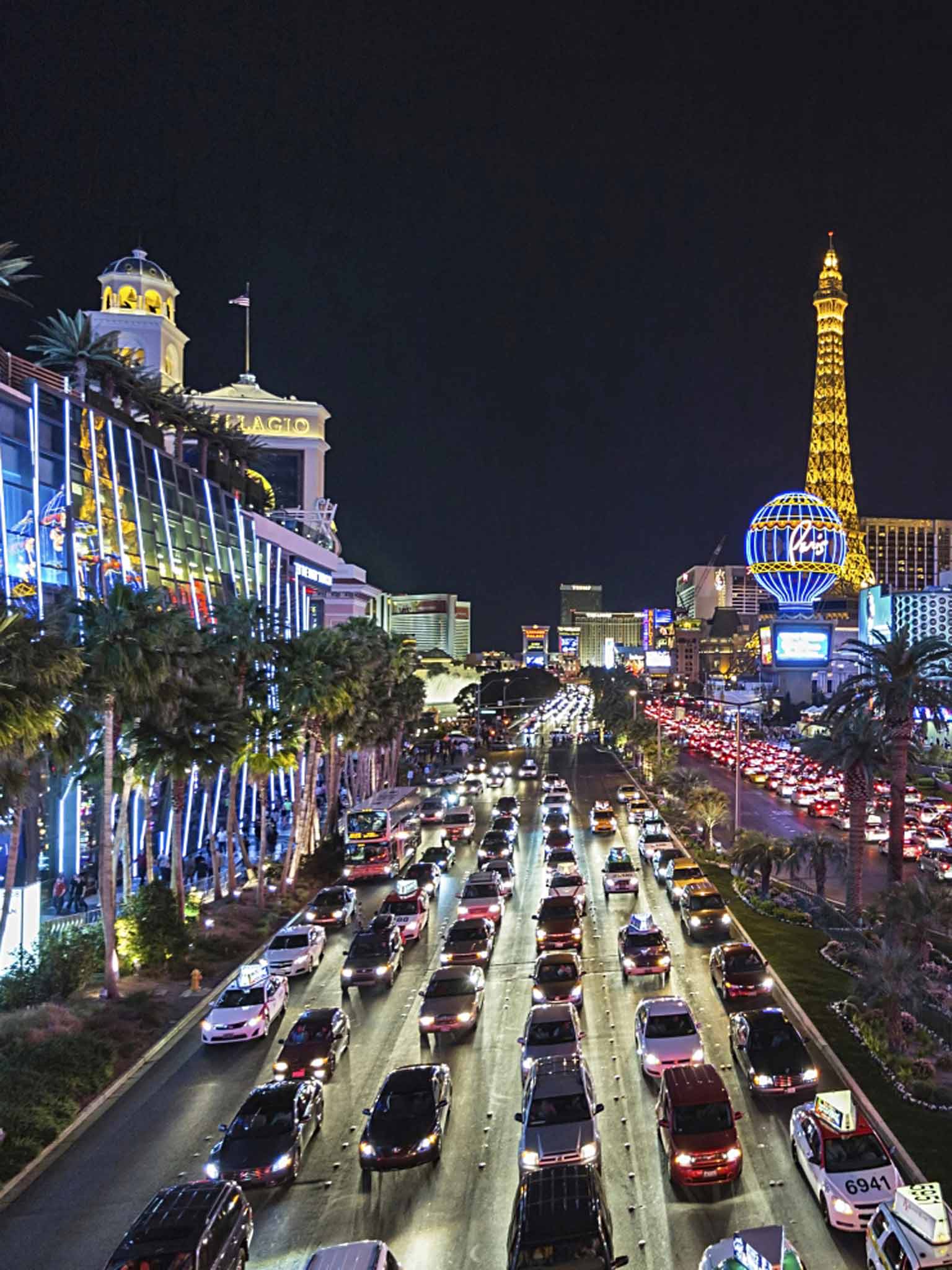What goes to Las Vegas, tends to stay in Las Vegas
The man who pays his way

Your support helps us to tell the story
From reproductive rights to climate change to Big Tech, The Independent is on the ground when the story is developing. Whether it's investigating the financials of Elon Musk's pro-Trump PAC or producing our latest documentary, 'The A Word', which shines a light on the American women fighting for reproductive rights, we know how important it is to parse out the facts from the messaging.
At such a critical moment in US history, we need reporters on the ground. Your donation allows us to keep sending journalists to speak to both sides of the story.
The Independent is trusted by Americans across the entire political spectrum. And unlike many other quality news outlets, we choose not to lock Americans out of our reporting and analysis with paywalls. We believe quality journalism should be available to everyone, paid for by those who can afford it.
Your support makes all the difference.La$ Vega$, as some departure screens in the US describe the Nevada desert city, is an auspicious destination for airlines. So lucrative are flights from London to the nest of neon that BA flies from both Gatwick and Heathrow to the city– the only long-haul destination to earn such an accolade. Virgin Atlantic pioneered the link, and now flies a Boeing 747 from its Sussex base to the Strip every day. At least, that's the theory. But on several occasions in the past four months, Virgin's luck – and that of its passengers – has run out.
At the end of December, a Jumbo-load of passengers who thought they were off to Las Vegas spent several anxious hours flying in circles over the Channel before returning to Gatwick for an emergency (and very impressive) landing with a seriously underperforming undercarriage.
Three weeks ago, technical problems led to a 33-hour delay for passengers planning to fly home from Las Vegas. And last Saturday and Sunday, the run of bad luck turned into four of a kind – with one Vegas-bound flight delayed at Gatwick for 24 hours, and another coming back grounded amid the glitter for an extra day. What goes to Vegas seems to stay in Vegas.
Running an airline is always a gamble, but a losing streak like this is painfully expensive. Everyone aboard those delayed planes (apart from the crew) is entitled to a €600 jackpot in compensation. On the back of my Ace of Spades, I calculate that to be £600,000 for last weekend's flights. Add the cost of rooms and meals for delayed passengers, and Virgin lost up to a million – a fortune even by Vegas standards.
Sunday snarl-up
"The initial delay was caused by a minor technical issue which was subsequently rectified," said a Virgin Atlantic spokeswoman when I asked the cause of Sunday's snarl-up. "Unfortunately, there was also a delay in catering to the aircraft." One expensive dinner. But how does a meal mess up and a mechanical glitch add up to a full day's delay? Says Virgin: "For the comfort of our customers, and to comply with Department of Transportation regulations, we let customers return to the terminal while the situation was resolved." The issues "resulted in our cabin crew going outside of the maximum allowed working hours". There was simply not enough time left for them legally to reach Gatwick.
Going "out of hours" gets messy. In February, an Air France A380 from New York to Paris diverted to Manchester. The French capital was only 45 minutes' further, but delays leaving JFK meant that the pilots were approaching their legal limit as they made landfall. As a result, nearly 500 passengers enjoyed an unexpected visit to north-west England when they should have been touching down in the Ile-de-France.
Now, one could make a coherent argument that since landings and take-offs constitute the most dangerous part of any flight, sending three narrow-bodied planes from Paris to Manchester to pick up the stranded passengers actually increases risk. But aviation rules are rules, as those Virgin passengers found on Sunday night.
Tarmac trouble
At times of disruption, you may have spent hours sitting on an overstuffed and overstuffy plane. Pilots rationally keep passengers on board in order to depart as soon as a slot becomes available, or the catering people have finished delivering their meals on wheels. Yet Virgin promises: "We will not permit our aircraft to remain on the Tarmac at a US airport for more than four hours before allowing passengers to disembark." That's because it has to.
I once spent seven hours stuck on the ground at the back of a packed plane during a Philadelphia snowstorm. My Northwest overnight transatlantic flight turned into a day crossing. But that was before the American authorities brought in rules to end such extensive waits.
Under the "Tarmac Delay" regulations, every airline has to publish its policy for dealing with ground delays, to meet an obligation to keep passengers informed every half-hour, provide food and water within two hours, and make sure the loos are in tip-top shape. All commendable – except for possible unintended consequences.
Virgin says: "As per any flight delay, we're looking into all of the events that took place but can't go into the specifics at this time."
While 450-plus passengers can leave a plane pretty promptly, getting them all back on board after stretching their legs is like herding cats. Virgin's obligation to return to the terminal may have meant that the airline lost the chance to fly everyone home that night – along with hundreds of thousands of pounds. High $take$.
Join our commenting forum
Join thought-provoking conversations, follow other Independent readers and see their replies
Comments